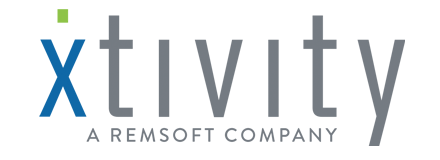A cross-functional team is defined as: “a team composed of at least three members from diverse functional entities working together towards a common goal.” A cross-functional team “will have members with different functional experiences and abilities, and who will likely come from different departments within the organization.” (BEST Lab UC Berkeley) Now, when it comes to MRO and the processes linked to these indirect materials, can you honestly say that your organization has a group of people with different expertise working towards a common goal? For most companies the answer is no.
The assembly of a cross-functional team is critical to utilizing MRO leading practices. Without experts from maintenance, engineering, operations, purchasing, and even finance achieving the lowest total cost of ownership within your MRO lifecycle is difficult. Why is this? If maintenance keeps the plant running, and purchasing is getting good deals on the necessary spare parts then we must be doing well. Right? Unfortunately, that is not always the case.
The opportunity lies in the alignment of departmental goals within the organization. There needs to be strategies in place in order to maximize the efficiency of the organization. There are many methods that can be used to help with this. In a 2014 issue of the Journal of Technology Management & Innovation there was a case study on Brazilian manufacturing companies as they related to developing and managing cross-functional teams. Within that study there were 22 managers interviewed across three organizations. The mechanisms employed for these teams to improve their operations were inter-functional meetings, joint planning, and departmental structure to integrate functions. Would your company know when to employ these mechanisms and who to involve for their MRO strategies? Probably not, but you’re not alone in this.
Let’s take ordering values and lead times within the ERP system as an example. In some companies these are only reviewed by one person and set based on gut feel. Or, they are not reviewed at all and parts are ordered as purchasing, maintenance, or the storeroom attendants see fit. This increases the risk of stocking out and could result in unplanned downtime. Nobody wants that. Imagine you had a strategy that employed a team of individuals working towards a set of common goals as they relate to MRO and the indirect costs associated with it. In the short-term inventory consulting may be required. As you move along, your team should be able to implement strategies that continuously improve your MRO operations and ultimately lower the direct and indirect costs associated with MRO. Less stock on the shelves, less spoilage, less downtime, more efficient mechanics, with the overall result being a lower total cost of ownership.
Employing a team of individuals that all have a part in MRO is essential. Another part of this is ensuring that the right balance of power is met. That’s not to say that all team members need to be at the same level. However, depending on the goals set, each individual must be able to confidently state their opinion(s) to the group and believe they are helping achieve the desired state. If this is not the case then the team will not function to its potential. Generally speaking, after assembling the team, employing a crawl-walk-run approach is a simple place to start. This ensures that initial goals are met before a team moves on to the next stage. The eventual state being an organization the employs leading practices when it comes to MRO and can consider themselves world class.
Often times, with our current schedules and goals, time does not allow an entire strategy to be constructed and implemented when it comes to developing a cross-functional team for MRO. If you think this is the case with your organization, let Xtivity come in and perform an assessment through an MRO insight workshop. Our consultants can help analyze your MRO lifecycle and come up with strategies to improve the current processes. Ultimately, the cross-functional team is responsible for the sustainability of these changes, however, having a group to help teach you will only expedite the process.
You can contact us by email at optimize@xtivity.com or call Clem at 1-519-854-8119.

